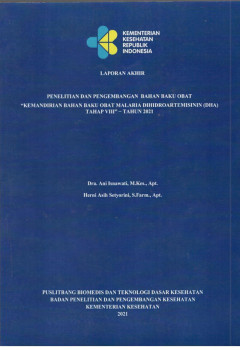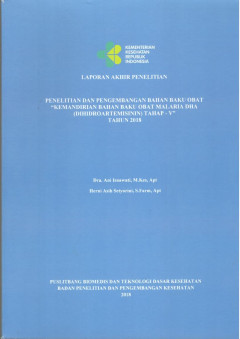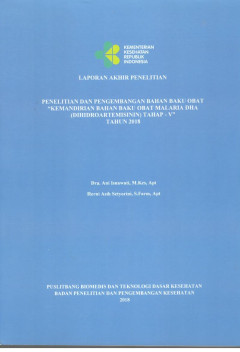Ditapis dengan
# Debug Box
/var/www/perpustakaan972/lib/SearchEngine/DefaultEngine.php:610 "Search Engine Debug 🔎 🪲"
Engine Type ⚙️: "SLiMS\SearchEngine\DefaultEngine"
SQL ⚙️: array:2 [ "count" => "select count(distinct b.biblio_id) from biblio as b left join mst_publisher as mp on b.publisher_id=mp.publisher_id left join mst_place as mpl on b.publish_place_id=mpl.place_id where b.opac_hide=0 and (b.biblio_id in(select bt.biblio_id from biblio_topic as bt left join mst_topic as mt on bt.topic_id=mt.topic_id where mt.topic like ?))" "query" => "select b.biblio_id, b.title, b.image, b.isbn_issn, b.publish_year, mp.publisher_name as `publisher`, mpl.place_name as `publish_place`, b.labels, b.input_date, b.edition, b.collation, b.series_title, b.call_number from biblio as b left join mst_publisher as mp on b.publisher_id=mp.publisher_id left join mst_place as mpl on b.publish_place_id=mpl.place_id where b.opac_hide=0 and (b.biblio_id in(select bt.biblio_id from biblio_topic as bt left join mst_topic as mt on bt.topic_id=mt.topic_id where mt.topic like ?)) order by b.last_update desc limit 10 offset 0" ]
Bind Value ⚒️: array:1 [ 0 => "%ARTEMISININS%" ]

Laporan Akhir Penelitian dan Pengembangan Bahan Baku Obat "Kemandirian Bahan …
- Edisi
- -
- ISBN/ISSN
- -
- Deskripsi Fisik
- xxi; 93 hlm.; bibl. : ilus.; 29 cm.
- Judul Seri
- -
- No. Panggil
- PBTDK 2021 8
- Edisi
- -
- ISBN/ISSN
- -
- Deskripsi Fisik
- xxi; 93 hlm.; bibl. : ilus.; 29 cm.
- Judul Seri
- -
- No. Panggil
- PBTDK 2021 8

Laporan Akhir Penelitian : Penelitian dan Pengembangan Bahan Baku Obat "Keman…
- Edisi
- -
- ISBN/ISSN
- -
- Deskripsi Fisik
- xx; 67 hlm; illus.; 30 cm
- Judul Seri
- -
- No. Panggil
- PBTDK 2018 9
- Edisi
- -
- ISBN/ISSN
- -
- Deskripsi Fisik
- xx; 67 hlm; illus.; 30 cm
- Judul Seri
- -
- No. Panggil
- PBTDK 2018 9

Laporan Akhir Penelitian : Penelitian dan Pengembangan Bahan Baku Obat "Keman…
- Edisi
- -
- ISBN/ISSN
- -
- Deskripsi Fisik
- xx; 67 hlm; illus.; 30 cm
- Judul Seri
- -
- No. Panggil
- PBTDK 2018 9
- Edisi
- -
- ISBN/ISSN
- -
- Deskripsi Fisik
- xx; 67 hlm; illus.; 30 cm
- Judul Seri
- -
- No. Panggil
- PBTDK 2018 9
Kemandirian bahan baku obat malaria DHA (dihidroartemisinin) tahap 1
- Edisi
- -
- ISBN/ISSN
- -
- Deskripsi Fisik
- 101 p.
- Judul Seri
- -
- No. Panggil
- PS1 76
- Edisi
- -
- ISBN/ISSN
- -
- Deskripsi Fisik
- 101 p.
- Judul Seri
- -
- No. Panggil
- PS1 76
Comparative study of the efficasy and safety of single dose artemisininaphtoq…
- Edisi
- -
- ISBN/ISSN
- -
- Deskripsi Fisik
- 88p
- Judul Seri
- -
- No. Panggil
- PS2 60
- Edisi
- -
- ISBN/ISSN
- -
- Deskripsi Fisik
- 88p
- Judul Seri
- -
- No. Panggil
- PS2 60

Asam L Askorbat Meningkatkan Viabilitas HUVEC dalam Kultur P. falciparum yang…
Artemisinin via overproduction of free radical acts as a potent drug against multi-drug resistant Plasmodium. because of new permeation pathway evidence at parasitized red blood cell membrane, L ascorbic acid as hydrophilic antioxidant hopefully can’t penetrate the membrane so that it won’t interfere the artemisinin antimalarial effect rather it protects the host cell out of parasitized ery…
- Edisi
- -
- ISBN/ISSN
- 0126-074X
- Deskripsi Fisik
- 5p.
- Judul Seri
- -
- No. Panggil
- Majalah Kedokteran Bandung, 43 (2) 2011 : 66-71

Isolasi dan Identifikasi Artemisinin dari Herba Artemisia annua L
- Edisi
- -
- ISBN/ISSN
- 0125-9695
- Deskripsi Fisik
- -
- Judul Seri
- -
- No. Panggil
- Buletin Penelitian Kesehatan:38(3):159168
- Edisi
- -
- ISBN/ISSN
- 0125-9695
- Deskripsi Fisik
- -
- Judul Seri
- -
- No. Panggil
- Buletin Penelitian Kesehatan:38(3):159168

Evaluasi Penggunaan Artemisinin (ACT) pada Penderita Malaria Di Puskesmas Sio…
Malaria is a public health problem in Indonesia. One of the problems encountered in the elimination of malaria is the resistance of Plasmodium against antimalaria drugs. Artemisinin (ACT) is aclass of antimalarial drugs that are schizonticide sesquiterpenes lactone blood for Plasmodium falciparumand P. vivax. ACT is a drug of choice for treatment in the malaria elimination program, due to the w…
- Edisi
- -
- ISBN/ISSN
- 1412-4025
- Deskripsi Fisik
- 7p
- Judul Seri
- -
- No. Panggil
- Jurnal Ekologi Kesehatan 10 (2) 2011 : 114-120

Analisis Kuantitatif Artemisinin dari Ekstrak Metanol Tanaman Artemisia Annua…
Artemisinin is the besi antimalaria for chloroquine resistant P. falciparum recommended by WHO in a combination therapy. Artemisnin is isolated from Artemisia annua L (family: Asteraceace) that can grow as is should be I Indonesia and has cultivated by BPTO Tawangmangu in order to self-material antimalaria. One of the important analysis is method for measuring artemisinin concentration in extra…
- Edisi
- -
- ISBN/ISSN
- 2085-675X
- Deskripsi Fisik
- 11p.
- Judul Seri
- -
- No. Panggil
- Jurnal Kefarmasian Indonesia,1(!): 33-43

he Combination Effect of Artemisinin and N-acety;custeine (NAC) on the Level …
Cerebral and lung during malaria infection is believed to be caused by free radicals activities that are produced during immunology process. The free radicals reacts with lipid component of cellular membrane which generates malondialdehyde (MDA) at its end-product. The aim of the research was to determine whether combination of artemisinin and NAC was more effective in decreaseing cerebral and …
- Edisi
- -
- ISBN/ISSN
- 0216-9347
- Deskripsi Fisik
- 3p.
- Judul Seri
- -
- No. Panggil
- Jurnal Kedokteran Brawijaya, 24(2): 73-78
 Karya Umum
Karya Umum  Filsafat
Filsafat  Agama
Agama  Ilmu-ilmu Sosial
Ilmu-ilmu Sosial  Bahasa
Bahasa  Ilmu-ilmu Murni
Ilmu-ilmu Murni  Ilmu-ilmu Terapan
Ilmu-ilmu Terapan  Kesenian, Hiburan, dan Olahraga
Kesenian, Hiburan, dan Olahraga  Kesusastraan
Kesusastraan  Geografi dan Sejarah
Geografi dan Sejarah